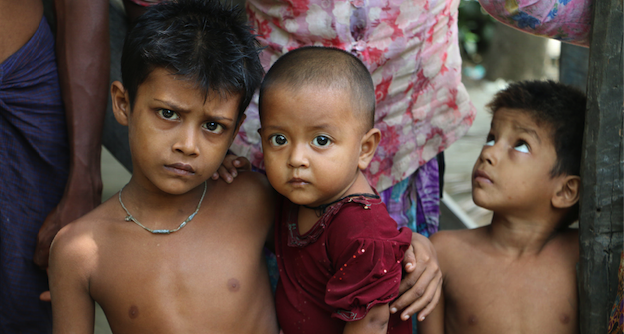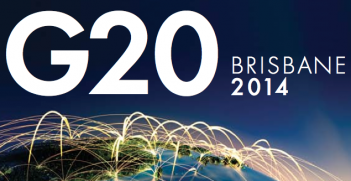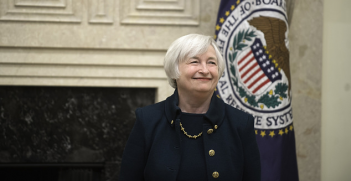Rohingya Genocide: International Complicity in Burma’s Brutal Domestic Violence

The systematic oppression and denial of the rights of the Rohingya people is not limited to Burma. By ignoring the issue and even engaging financially in the region, Australia is essentially promoting this genocide.
On 19 April of this year, a packed boat carrying more than 60 Rohingya Muslim men, women and children capsized off Sittwe in Burma. At least 21 people, including nine children, died, with many still unaccounted for. These Rohingya are among the 1500 residents of Sin Tet Maw camp for the internally displaced. Denied land travel, they are forced to seek special authorisation to travel by dangerous sea route to Sittwe in order to purchase essential food and medicines. More than 140,000 Rohingya are being held in apartheid-like camps since being forced from their homes in waves of violence in 2012. Janet Jackson, UN Resident and Humanitarian Coordinator in Myanmar (20 April 2016) reported:
This accident serves as a tragic reminder of the vulnerability that many communities and families face in this area of Rakhine where their only option is to use this mode of travel in order to access markets, livelihoods, and other basic services that are essential for a dignified life.
There was no international condemnation of the government’s continued denial of Rohingya human rights.
A history of abuse
Myanmar is the longest running country mandate within the United Nations system of special procedures. The role of Special Rapporteur for the situation of human rights in Myanmar was created in 1992, due to egregious human rights abuses, especially the continued persecution of the Rohingya. Each year since, the UN Special Rapporteur has reported serious violations of human rights of Rohingya, denounced the regime’s failure to cooperate and take serious steps to end ongoing violations of international law. Each year the government denies these allegations, denies Rohingya citizenship, and continues to act with impunity.
Today, the genocide unfolds in Burma with complicit silence of Western donor nations. There is a long history of such bystander nations’ selective refusal to act. Global awareness of the prevalence of genocide and ethnic cleansing was heightened by the 1993–94 massacre in Rwanda where UN Force Commander-Lieutenant Romeo D’Allaire and a small band of UN peacekeepers were abandoned by the world’s major powers. D’Allaire’s calls to the UN for help were ignored, a failure of humanity to act.
Genocide was planned in Rwanda without secrecy, after months of careful preparation, still the international community held back assistance. The International Monetary Fund, the World Bank, foreign companies and countries continued to invest money into the economy, engaged in trade negotiations with the Rwanda authorities, contributing directly to the conditions that made the genocide possible.
In Burma a similar pattern of official denial and international silence concerning genocide committed by the Burmese government against Rohingya Muslims is currently unfolding. The World Bank, foreign direct investors, technical experts, and foreign governments are complicit in this denial and profit at the expense and survival of the Rohingya. The World Bank, Asia Development Bank, European Union, the UK and Japan increased aid and development support to Burma in 2014. Australia increased development assistance of $90 million in 2014–15. This aid does not reach the Rohingya, and humanitarian groups are denied full access.
Australian investment
Burma is promoted as an investor’s dream. ANZ deems it to have “the lowest unit labour cost market in Asia, average wages even lower than Africa” and likely to remain so for a considerable period. Myanmar has the “key to attracting foreign direct investment platforms to utilise the last untapped labour market in Asia”. With abundant arable land waiting development, large hydrocarbon resources, and by harnessing “the mighty Mekong for hydro power generation, Myanmar can become a battery for industrialists” – a destination for FDI platforms.
Australian companies such as ANZ, Woodside and Bluescope Steel may be accused of promoting discrimination against the Rohingya through bilateral engagements with Burma. To facilitate increased trade and investment links through infrastructure, finance and banking sectors these companies are “all establishing a commercial presence in Myanmar. Woodside, the largest holder of offshore interests, covers 46,000 square kilometres in the Rakhine basin. Rohingya, locked up in Rakhine State, do not benefit.
Moreover, the Department of Foreign Affairs and Trade’s Myanmar Country Brief Overview doesn’t mention Rohingya, but reiterates the government’s recognised 135 separate ethnic groups. Rohingya’s lack of legal status gives state approval to endemic discrimination. The 2014 census had no category for Rohingya, only for 135 other state-recognised groups. Rohingya were denied a vote in 2015 elections.
Denial of recognition
The term Rohingya is illegal in Burma. Five men were imprisoned November 2015 for their involvement in printing a Calendar stating that Rohingya Muslims are an ethnic group. After pressure by the Buddhist Nationalist Association for the Protection of Race and Religion (Ma Ba Tha), the men were charged with making, publishing and circulating information which may cause public fear or alarm and may incite people to commit offences against the state or against public tranquillity.
Australia privileges commercial interests at the cost of human rights. It is time to take a principled stand on the issue. As the only democratic nation to have not legislated a Bill of Rights, Australia has not publicly condemned persecution of Rohingya. The Rohingya await a human rights principled stand for their survival. Australia continues to ignore the systematic and widespread abuse detailed each year by the UN Special Rapporteur of human rights.
The eradication of a people
In March 2015, researchers discovered that the Rohingya are subjected to dehumanisation through rampant hate speech, the denial of citizenship, and restrictions on freedom of movement, in addition to a host of other human rights violations that put this population at grave risk of additional mass atrocities and even genocide. The research team were deeply concerned that many preconditions for genocide were in place. They reported that there was still time to prevent genocide if urgent action was taken.
The Simon-Skjodt Centre for the Prevention of Genocide, created with Romeo D’Allaire the first early warning system to predict impending genocide. The system has identified the top 10 countries most at risk of mass killings. Burma is number one.
Moreover, Genocide Watch has issued a genocide alert on the continued plight of Rohingya On World Refugee Day, the group spoke of Rohingya as “oppressed, victimized, terrorized and forcefully expelled from their homelands by both government authorities and extremist Rakhine people.”
The Rohingya are continuously referred to in academia as being victims of genocide. The government’s abusive policies, cloaked in terms of democratisation and political reform, are openly supported by many Western nations. As a bidder for the UN Human Rights Council in 2018, it is time Australia took a lead role in stopping this genocide.
Dr Nancy Hudson-Rodd obtained her PhD from the Université d’Ottawa. She is a human geographer, former Director of the Centre of Development Studies at Edith Cowan University in Western Australia and is a university associate at the School of Land and Food University of Tasmania in the discipline geography. She is affiliated with the Asia Institute University Tasmania has conducted research in and on Burma for over a decade on arbitrary confiscation of farmers’ land. This article is published under a Creative Commons Licence. It may be republished with attribution.





